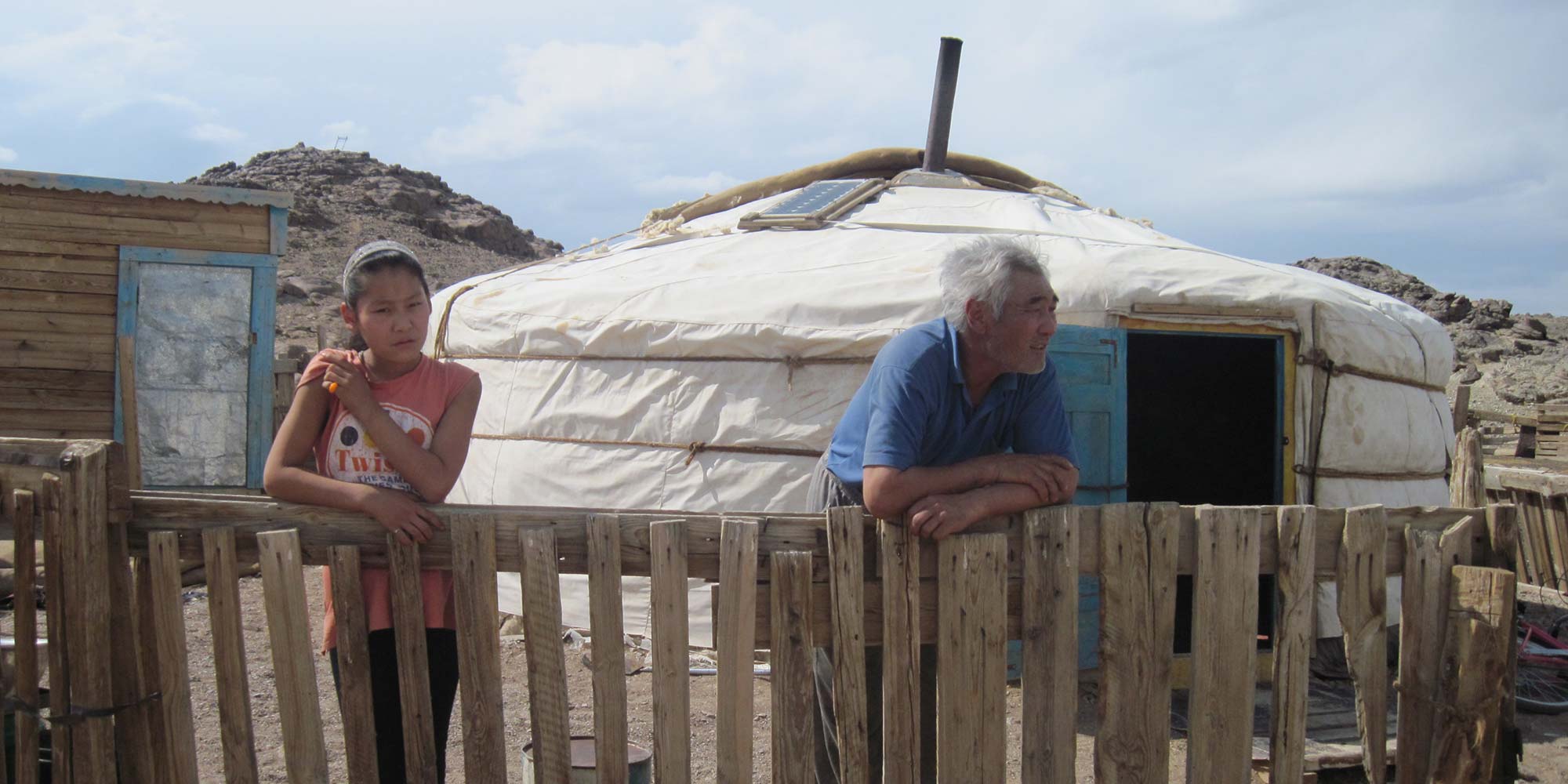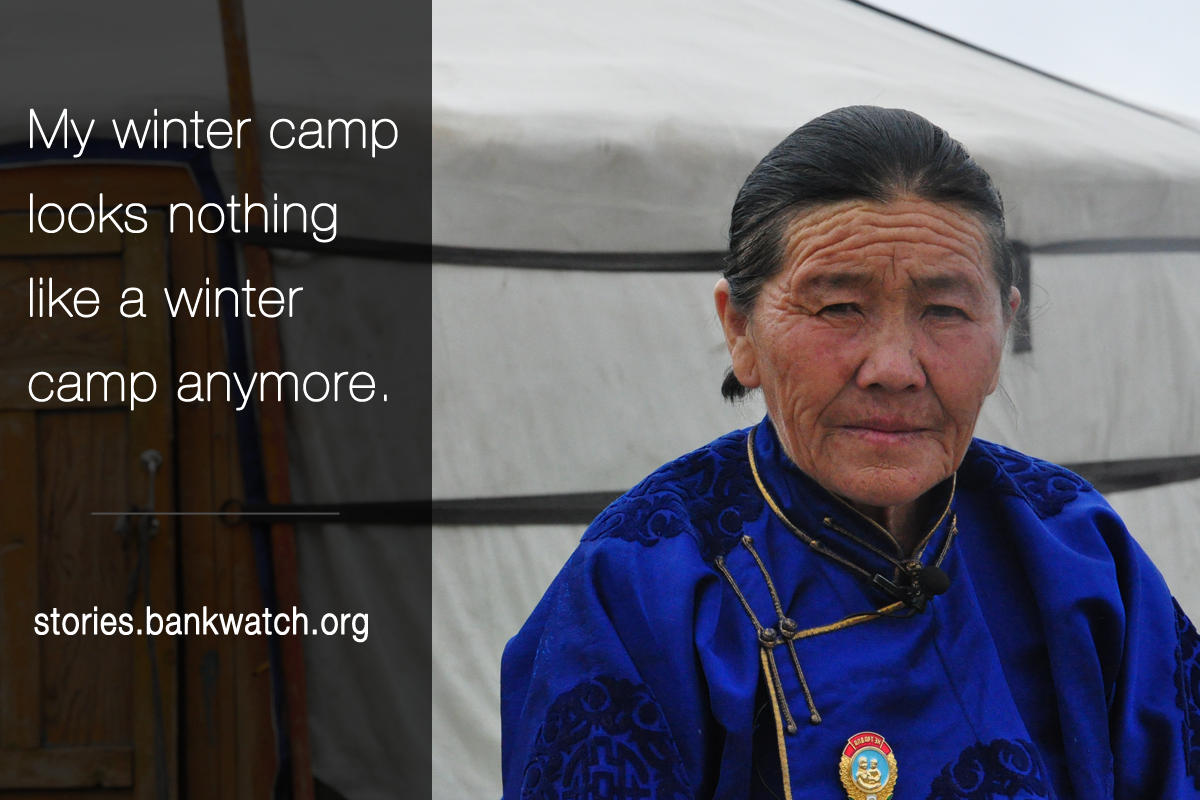ARCHIVED: Mining boom in Mongolia
With huge amounts of unexploited natural resources (gold, copper, coal and more) the Mongolian economy is estimated to grow massively in the years to come. But will it also benefit the people in Mongolia? Our work shows how mining operations lead to pollution and displacement for local herders and exacerbate water scarcity issues.

Stay informed
We closely follow international public finance and bring critical updates from the ground.
Background
With huge amounts of unexploited natural resources (gold, copper, coal and more) the Mongolian economy is estimated to grow massively in the years to come. But will it also benefit the people in Mongolia? Our work shows how mining operations lead to pollution and displacement for local herders and exacerbate water scarcity issues.
Dust, displacement and intimidation in the Gobi Altai mountains
Nomadic herders in the Gobi Altai mountains are facing pollution and displacement by the Tayan Nuur iron ore mine that receives financing from the European Bank for Reconstruction and Development.
While the mining company Altain Khuder responds to criticism with intimidation, the EBRD is not doing enough to protect herders’ rights.
Read more:
When the dust settles
A multimedia story about herders impacted by the Tayan Nuur mine
Dust, displacement, intimidation – Mongolian herders are under pressure by iron ore mine
Blog post | December 9, 2014
Report: Impacts of the Tayan Nuur iron ore mine on nomadic herders’ lives in Mongolia
Study | December 9, 2014
Case study on the impacts of the global iron ore sector: Altain Khuder in Mongolia
SOMO case study | December 17, 2014
Water scarcity in the South Gobi desert
In the South Gobi desert, the highly intensive mining industry with its immense need for water can pose precarious risks to the livelihoods of herders.
Read more
Spirited away – Mongolia’s mining boom and the people that development left behind (pdf)
Study | January 30, 2012
EBRD financing for mining in Mongolia
By financing several mining projects over the last few years, the EBRD followed other investors’ bias towards the natural resources sector in Mongolia. Instead, it should diversify its portfolio in the country to help Mongolia reduce its dependency on commodity exports.
Read more:
The EBRD in Mongolia: Economic diversity is something else
Blog post | September 18, 2012
Online debate
Following a discussion in the European Parliament on the EBRD’s mining operations, Bankwatch organised a live-streamed google hangout with Mongolian campaigner Sukhgerel Dugersuren.
Latest news
MEPs call for responsible new EBRD mining strategy
Press release | 12 July, 2012Brussels – The new mining strategy of the EBRD risks contradicting the EU Resource Efficiency Roadmap and responsible mining principles, argue 22 MEPs in an open letter to European Commissioners which asks the EC to take a more active role in improving the EBRD mining strategy currently under review. (1)
Read moreNew EBRD mining strategy promotes unstable dependency on raw materials exports, say NGOs
Press release | 1 June, 2012Moscow, Russia — In response to a public presentation today from the European Bank for Reconstruction and Development of its new mining strategy, NGOs CEE Bankwatch Network and Greenpeace Russia are calling on the bank to deprioritise investments in mining and mining-related infrastructure in order to avoid deepening the dependency of its countries of operation on raw materials exports.
Read moreEBRD energy lending report: conflicting investments end up contradicting climate science
Press release | 17 May, 2012London – Almost half of the 6.7 billion euros lent by the European Bank for Reconstruction and Development (EBRD) between 2006-2011 goes to support for fossil fuels, according to a report issued today by CEE Bankwatch Network. Support for coal, oil and gas must be discontinued altogether, argues Bankwatch, if the bank’s commendable efforts on increasing financing for renewables and energy efficiency are to have a positive impact in the global fight against climate change.
Read moreRelated publications
The development of Mongolia’s energy sector: Going beyond coal
Briefing | 5 May, 2017 | Download PDFMongolia’s fragile economic situation, with its high deficit and increasing foreign debt, is putting the country on a risk map for foreign investment. Even so, the government and international financial institutions show no sign of adjusting their plan
Asian Development Bank projects in Mongolia
Briefing | 5 May, 2017 | Download PDFWith a dominance of coal in its energy sector, the Mongolian government is planning more than six new coal power plants over the next decade, despite already severe air pollution and public protests against the government’s inaction. The Asian Developm
Mongolia’s energy sector: time for a rethink
Study | 3 May, 2017 | Download PDFThis report is meant as a background document for civil society in Mongolia and international groups to advocate for increased transparency and participation in priority energy projects; improved forecasts of power demand and alternatives for the sus

